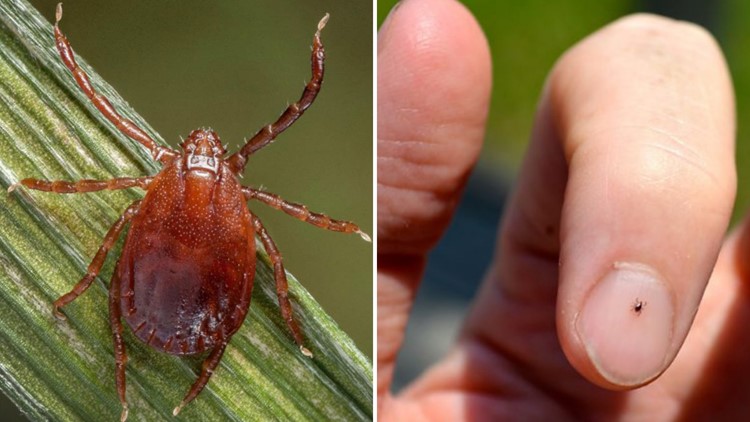MISSOURI, USA — Anaplasmosis, babesiosis, ehrlichiosis, theileriosis, rickettsiosis: There are all diseases humans can get from a tick now spreading across Missouri.
The invasive Asian longhorned tick was reported for the first time in the U.S. in 2017, but officials believe it was likely in the country since before 2010. The tiny tick is the size of a sesame seed but could pose big health risks.
RELATED: 4 VERIFIED facts about ticks
A recent "Pest Alert" from the U.S. Department of Agriculture said the tick is spreading across Missouri and numerous other states, including Arkansas, Connecticut, Delaware, Georgia, Kentucky, Maryland, New Jersey, New York, North Carolina, Ohio, Rhode Island, South Carolina, Pennsylvania, Tennessee, Virginia and West Virginia.
The tick, along with transmitting human diseases, is also a threat to Missouri's livestock. The female ticks can reproduce without mating and lay up to 2,000 eggs, which can overwhelm cattle.
"The tick often forms large infestations on one animal, causing great stress and reducing growth and production," the USDA's pest alert said. "A severe infestation can even kill the animal due to blood loss."
The good news: The CDC said Asian longhorned ticks appear to be less attracted to human skin compared to well-known native ticks, including blacklegged ticks, lone star ticks and American dog ticks.
If you see one of the ticks, USDA officials ask that you place it in a zip-top bag, seal it and give it to your local veterinarian for identification.
Top St. Louis headlines
Get the latest news and details throughout the St. Louis area from 5 On Your Side broadcasts here.



